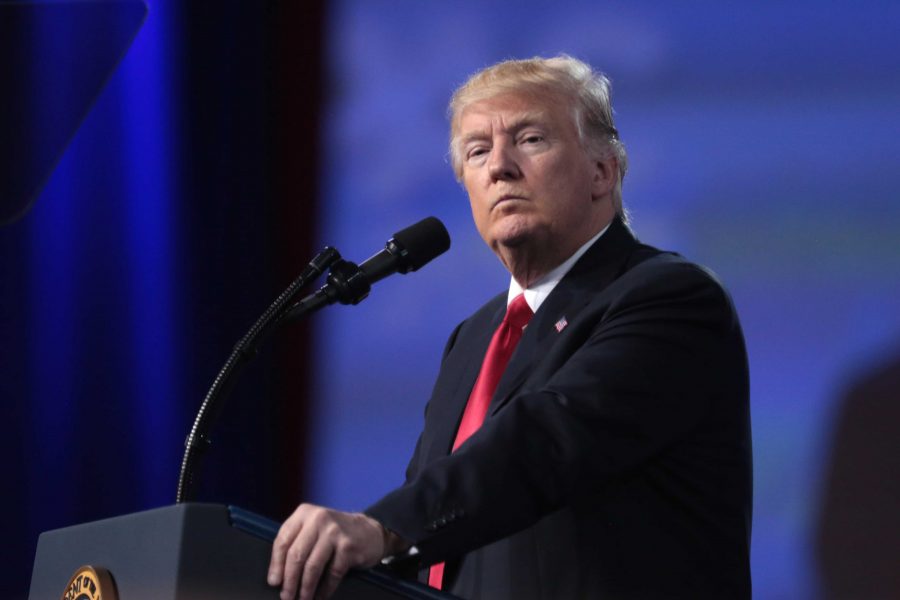Election 2016 vs. 2020: What’s changed, what’s stayed the same?
September 30, 2020
With another presidential election right around the corner, students and staff at South Dakota State University may wonder just how different this year’s election will be compared to the 2016 election.
David Wiltse, an associate professor of political science who has done research in elections and polling practices, says that while there isn’t much information to compare the 2016 and 2020 election yet, there are still some aspects of the campaigning that can already be examined.
One part of the campaigning process that can clearly be compared is each parties’ main views and platforms this year. According to Wiltse, while the Democratic Party’s platform has shifted from what it was in 2016 to fit current world events, the Republican Party has barely changed their stance since the last election.
“He [Donald Trump] has not changed at all,” Wiltse said. “They copied the party platform from 2016 and magically turned it into the platform for 2020.”
In comparison, the Democratic Party, after meeting back in July to discuss this year’s platform, have switched their main points to focus more heavily on climate change, police brutality and systemic racism in America, said an article by the Washington Post.
Some of these topics include climate change and health care reforms, raising the minimum wage and opposing President Trump’s deployment of federal agents to protests, according to National Public Radio.
“Despite the fact that they nominated someone who is kind of on the more moderate side of the Democratic Party, they forwarded a much more liberal agenda in some ways, simply because liberal activists in the party are very energized at this point,” Wiltse said. He also mentioned how, compared to 2016, the Democratic Party has been slowly pulling to the left due to the influence of more “progressive” democrats in the party.
Another, more obvious, difference between the two election years is how the presence of COVID-19 and absentee ballots will affect voting. According to the Pew Research Center, about 39% of all voters are planning to vote by mail, while 40% plan to vote in person. Still, as of August 2020, 49% of all voters also anticipate having a difficult time voting this year due to the pandemic and other challenges.
Voters are also less decisive on who they believe will win this year. Pew Research Center shows that 50% of voters believe Trump will win the 2020 election, and 48% believe Biden will win. In 2016, Hilary Clinton was expected to win among 55% of voters, while only 42% believed Trump would win.
Another changing factor is the increase of political polarization, something that has been occurring since 1994. While the 2016 election did not directly increase this shifting between parties, the differences have been more apparent as of recent years. Pew Research Center has found that more states are voting for the presidential candidate from their senators’ party and vice versa—up to 77% in 2018—and members of each party rarely ever switch “sides,” with only 9% of voters from either party claiming to have switched since July 2020.
With these differences in opinions over the years comes a greater divide in politics overall. Wiltse explained that the country is now the most polarized it’s been since the Civil War when it comes to politics. With this comes some long-term effects on democracy and political expectations.
“Political scientists are very, very nervous as a group, because we’re seeing a lot of the same things in the U.S. that we see as other countries descend into some kind of competitive authoritarianism,” he said.
These conflicts have caused the breakdown of some long established, though unwritten, political rules, which Wiltse says has led politicians in recent years to behave in ways that, while not unconstitutional, question the democratic integrity of our government.
“There’s not many laws out there that prevent me from going to downtown Brookings and just screaming at people … there’s nothing stopping me from doing that other than the fact that I don’t want to be a jerk,” he said, citing an example he often gives in his classes.
Despite these concerns, more Americans believe in the importance of the 2020 election than they did during the 2016 election, according to Pew Research Center. While 74% of voters believed that the 2016 election results “really mattered,” that number is now up to 83% as of this year, a record high dating back to the 2000 presidential race.
Regardless of political beliefs, few people are truly aware of all nuances to a presidential election, and this year is no different. No matter how involved in the presidential race someone may be, the greater influence of the results can’t be known until after Nov. 3.
“This is something that most Americans, it’s just kind of out of vision for them, because we don’t pay attention to those finely grained details,” Wiltse said.






















